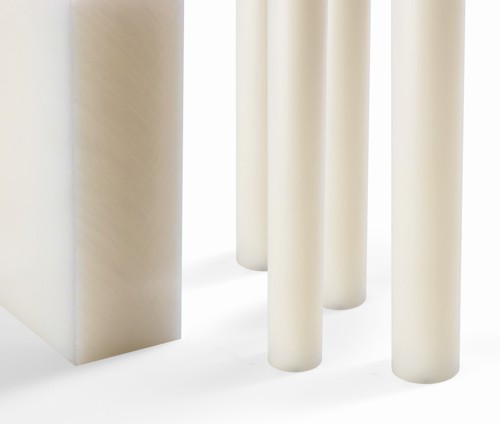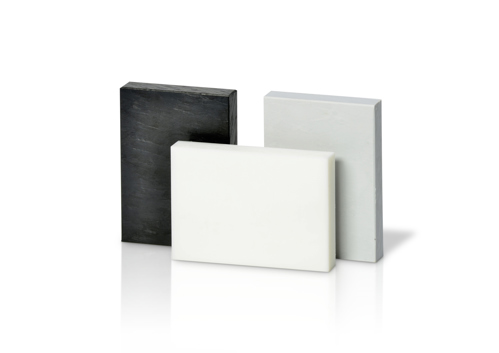ERTALYTE® PET-P
Ertalyte is a non-reinforced, semi-crystalline thermoplastic polyester based on polyethylene terephthalate (PET-P). It is made from proprietary resins made by Mitsubishi Chemical Advanced Materials. The material is characterized by the best dimensional stability in combination with excellent wear resistance, a low coefficient of friction, high strength and resistance to moderately acidic solutions. The properties of Ertalyte make it particularly suitable for the manufacture of precision mechanical parts that can withstand high loads and long-term wear conditions. Ertalyte's continuous use temperature is 210°F (100°C) and its melting point is nearly 150°F higher than acetals.
Ertalyte offers good chemical resistance and abrasion resistance. Due to the low moisture absorption, mechanical and electrical properties remain virtually unaffected by moisture. Ertalyte can be machined in detail on standard metalworking equipment.
Ertalyte is available in a 'Food Grade' certified version and therefore suitable for use in the food industry. Lakwijk is fully versed in this certification. Ertalyte is available in natural (white) and also in black on request. The material is an excellent candidate for manufacturing parts used in the food processing industry, machine and equipment construction.

Benefits of Ertalyte® PET-P:
- Good for both wet and dry environments
- High mechanical strength, stiffness and hardness
- Ideal for parts with close tolerances
- Excellent wear resistance (comparable or even better than polyamide)
- Very high dimensional stability (better than polyacetal)
- Excellent stain resistance
- Better resistance to acids than polyamide and polyacetal
- Good electrical insulating properties
- Physiologically inert (suitable for contact with food)
- Better resistance to acids than polyamide or polyacetal
- High resistance to high-energy radiation (gamma and X-rays)
